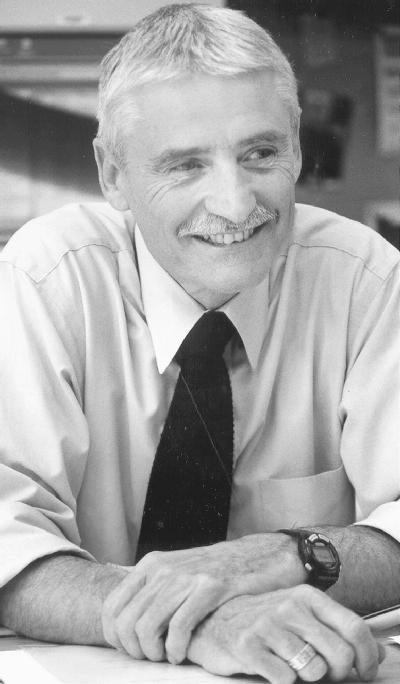February 26, 2004
Hartwell to present Annual Faculty Lecture
Picture a single yeast cell. This is remarkably hard for anyone to do, since yeasts do very little but metabolize sugars so they can replicate, divide and reproduce as quickly as possible. These same enthusiastic little yeasts, which belch carbon dioxide and produce alcohol as a by-product, provide us with something besides bread and beer, according to 2001 Nobel Laureate Leland Hartwell: their rapid cellular reproduction gives us a model of how cells replicate both in normal and cancerous situations.
Hartwell, a UW professor of genome sciences and president and director of Fred Hutchinson Cancer Research Center, will speak about his work with yeasts and the larger story of basic scientific research at the University’s 28th Annual Faculty Lecture at 7:30 p.m. Wednesday, March 3, in 130 Kane Hall on campus. His presentation is titled “Medical Research: The Agony and the Ecstasy.”
“Here at the Hutch, rather than just being interested in the fundamental biology of cancer, our board members, our patients and our donors are asking what we are going to do about curing this disease,” Hartwell said. “At the center of all of this is the issue of appreciation versus application — the theme of my lecture. In biology and medical research, any new discovery is always challenged for its application. While this is obviously important, I think we tend to overlook the beauty of biology.”
The beauty of biology and a love of difficult problems have marked Hartwell’s research since his graduation with a Ph.D. from the Massachusetts Institute of Technology, where his mentor was Dr. Boris Magasanik. After postdoctoral work at the Salk Institute for Biological Studies and a stint at the University of California, Irvine, Hartwell joined the UW genetics faculty in 1968 and became a full professor five years later. In 1996 he added duties at the Fred Hutchinson Cancer Research Center to his teaching schedule at the UW, and became the Hutch’s president and director in 1997. He was awarded the Nobel Prize in physiology or medicine in 2001, for his work in identifying “checkpoint” genes, the genes that notice when mistakes have been made during cellular reproduction and halt cell division so that repairs can take place.
These alterations in cell reproduction are similar in both yeast and human cells, and are frequently the beginning of cancers. This tiny clue, in the eyes of a researcher, can be a thing of beauty.
“Cancer cells have taught us wonderful things about normal cells, things that are worthy of our appreciation regardless of their application,” Hartwell said. “We should stand in awe of what we have learned about ourselves and other living things over the last few decades.”

